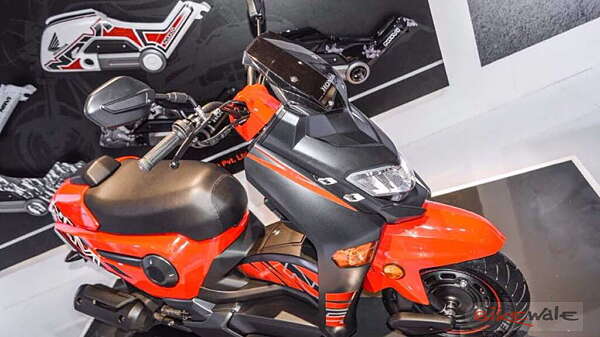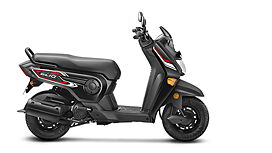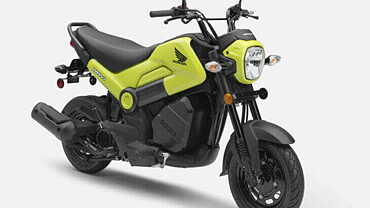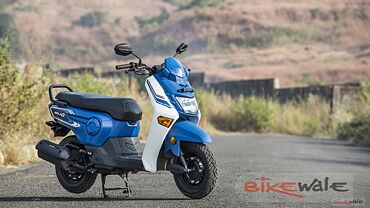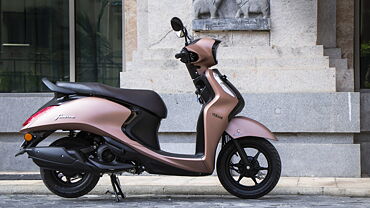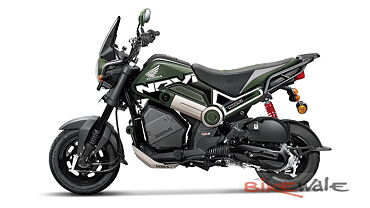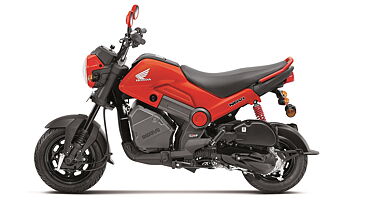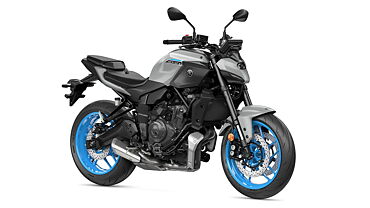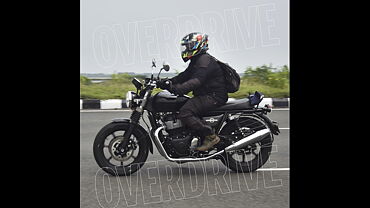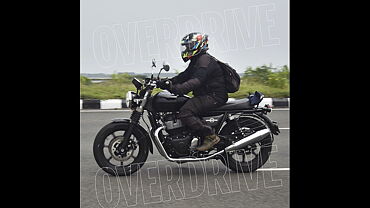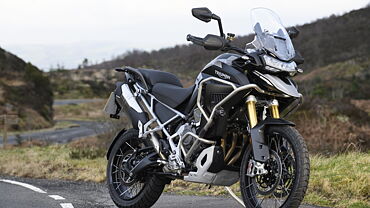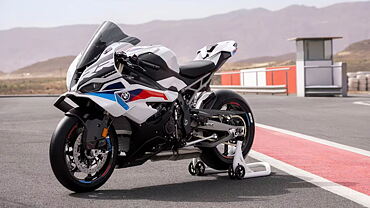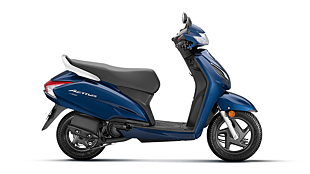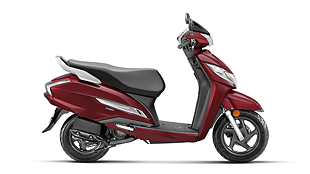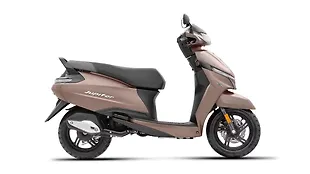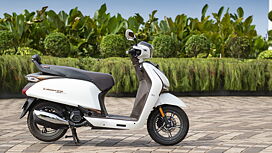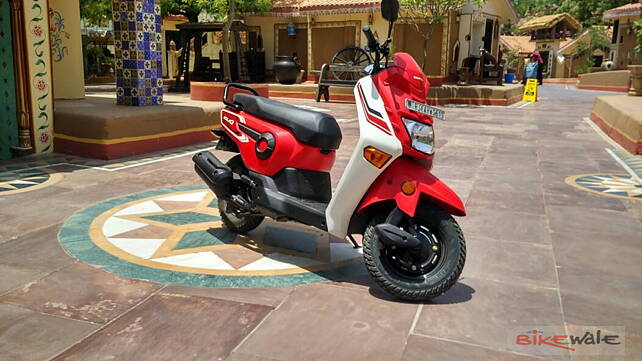
Meet the Honda Cliq. It is a different take on the traditional scooter, which is popularly referred to as an Activa. Incidentally, the latter is also what the Cliq is based on. Quoting Honda verbatim, “The Cliq has been specially developed to maximise utility with additional value of comfort and convenience for utilitarian customers.”
In layman’s parlance, that means Honda is gunning for the semi-urban and rural customers with it latest offering. Hitherto, entry-level motorcycles, like the Hero Splendor and the Passion, have been the two-wheelers of choice in such markets. Not that Honda hasn’t tried to beat Hero at its own game; it did with the Dream series (Dream Yuga, Dream Neo and the Dream CD110), but with little effect.
Honda and the scooter ploy
So, Honda has now decided to reinvent the game and play to its strengths. That strength is scooters. Now even if you have been following the two-wheeler scene loosely, you’d know that the Honda Activa is not just by far the best selling scooter in the country, but it has in fact claimed the title of the best-selling two-wheeler on a number of occasions too.
The truth though is, scooters – gearless scooters to be exact – is mostly an urban phenomenon. So much so, that it has almost killed the 100-110cc motorcycle market in metros and the like. And this isn’t true just for Honda; all the mainstream two-wheeler manufacturers in India – be it Suzuki, TVS, Yamaha and Hero even – have been registering their highest sales growth in the scooter segment.
Clearly then, one can’t fault Honda’s thinking of bringing the scooter revolution to the rural scene, but, to do that, it needs the right product.
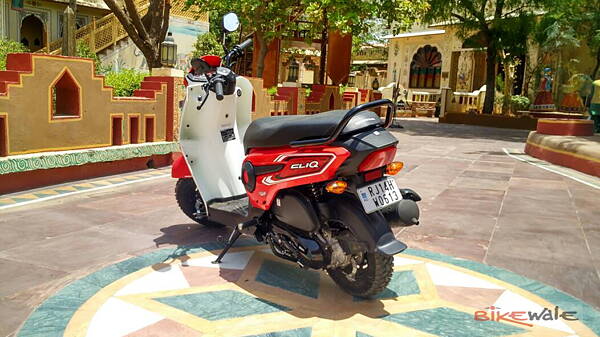
Cliq and the utilitarian market
The rural market lacks the infrastructure seen in the metros. So, roads are mostly poorly surfaced, fuel stations are few and far apart, and things like public transport are almost non-existent. Needless to say, a two-wheeler then becomes one’s lifeline.
Not only should it be up to the task of taking on poor roads, it must also have good range on a full tank, and the build quality and reliability must be top class for it to withstand the neglect and abuse that comes with a vehicle being used for more than just commute. And of course, it must carry the world with you including not just your tau or the nosy neighbour, but also gunny bags and buckets and mangoes and what have you.
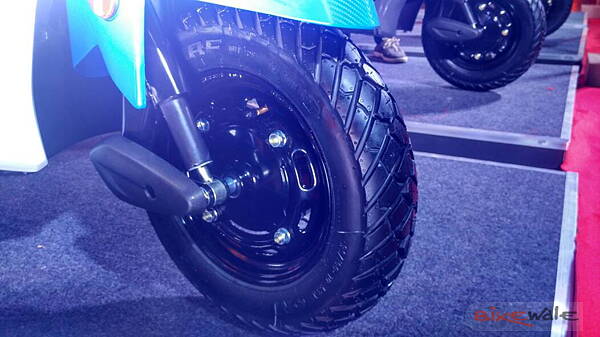
Unfortunately, the Cliq, unlike its motorcycle counterparts, can’t do it all…
It has block pattern tyres for better grip on poorly paved roads, but it doesn’t have big enough wheels or suspension travel for added stability when the going gets rough. The seat is flat and long, so yes, you can carry an illegal number of occupants with you. But, with its plastic body and less than streamlined design, hanging stuff off the side or adding an overly large piece of luggage (not to mention dropping the Cliq) will break that plastic.
And though it comes with a large under-seat storage area, it also means that the fuel tank size has shrunk to a meagre 3.5 litres. This won’t just be inconvenient, but in markets where fuel pumps are few and far in between, it is bound to give owners range-anxiety. And I thought that phenomenon was associated with EVs only!

The positioning conundrum
The idea of having a gearless scooter designed especially for the utilitarian or rural market is brilliant. Majority of two wheeler sales in the near future will come from these markets. But, it has to be done from the scratch with customer needs in mind. Things like a metal body, big wheels, a large fuel tank and smart load-carrying ability are a must.
Sadly, Honda hasn’t done that with the Cliq. If you have been paying close attention, you’d realise the Cliq is nothing but a slightly toned down version of the scooter-like Navi, shown at the previous Expo. And as we all know, the Navi was never designed to be a rural offering; not with its list of accessories, a quirky design and plastic panels that failed to exude richness. It was for the young urban dweller.
But, with the Navi not doing as well as Honda might have imagined, a name and positioning change for the ready-to-launch scooter version of the Navi might have seemed like a smart idea. And it still might be. Only I don’t see it.
